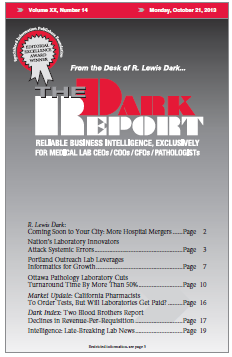CEO SUMMARY: Some payments are beginning to flow for claims submitted under the new molecular test CPT codes. But there is a new issue. Medicare contractors, Medicaid programs, and private health insurers are deeming certain molecular tests to be medically unnecessary. These payers are requesting that labs submit more documentation before they will pay for […]
To access this post, you must purchase The Dark Report.


